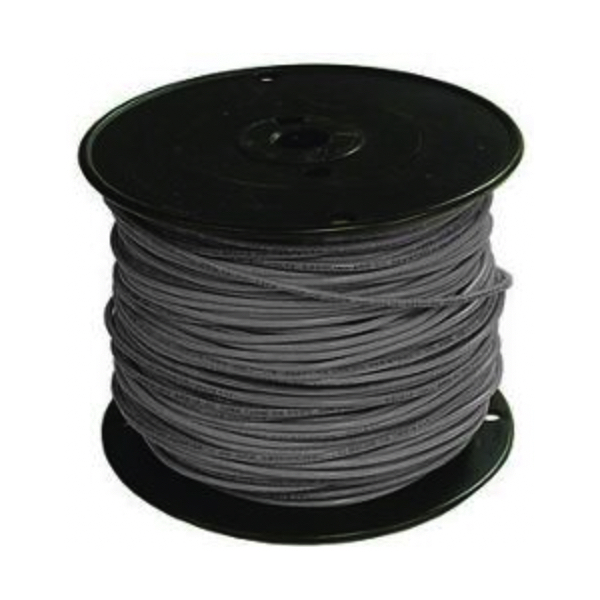MTW Wire

Machine Tool Wire (MTW) is a versatile industrial wire commonly used for internal wiring of machinery, control panels, and electrical equipment. RSP Supply offers MTW wire in 12 to 18 gauge, making it suitable for a wide range of control and power distribution applications. Its flexibility and durability allow it to be installed easily in tight spaces and complex wiring paths found inside industrial equipment.
MTW wire is rated for use in both wet and dry locations and features temperature ratings up to 90°C, with some constructions rated up to 105°C. The wire is typically insulated with PVC, providing resistance to oil, moisture, and many chemicals commonly encountered in machine tool environments. This insulation also contributes to the wire’s flexibility, making it ideal for routing through wire ducting and around sharp bends within enclosures.
Available in both solid and stranded constructions, MTW wire can be selected based on application requirements. Stranded MTW wire is preferred where flexibility and vibration resistance are important, such as in control cabinets, while solid MTW wire is used in installations with minimal movement. With UL listings and industrial-grade construction, MTW wire provides a dependable solution for a wide variety of industrial wiring needs.
FAQs
Q: What is MTW wire used for?
MTW wire is used for internal wiring in machinery, control panels, and electrical equipment in industrial applications.
Q: Is MTW wire suitable for wet locations?
Yes, MTW wire is rated for use in wet locations up to 60°C and dry locations up to 90°C, depending on the specific construction.
Q: What is the difference between solid and stranded MTW wire?
Stranded MTW wire offers greater flexibility and is suited for applications with movement or tight bends, while solid MTW wire is used where minimal movement is expected.
Q: Does MTW wire have oil and chemical resistance?
Yes, MTW wire insulation is designed to resist oil and many common industrial chemicals.
Q: How does MTW wire compare to THHN wire?
MTW wire is more flexible than THHN and is commonly used inside control panels, while THHN is more rigid and typically installed in conduit or cable trays.
Why Buy MTW Wire: 12 to 18 Gauge from RSP Supply
RSP Supply offers a reliable selection of MTW wire in 12 to 18 gauge to support industrial wiring and control panel applications. Our MTW wire meets UL standards and provides the flexibility, temperature rating, and durability required in machine tool environments. Customers rely on RSP Supply for dependable wire products, technical expertise, and solutions designed for industrial electrical systems.

